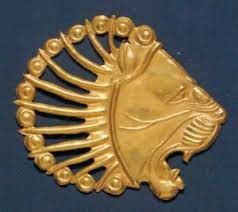The Digital Library of the Middle East (DLME) offers free and open access to the rich cultural legacy of the Middle East and North Africa by bringing together collections from a wide range of cultural heritage institutions. Developed by an engineering team from CLIR and Stanford Libraries, the platform federates and makes accessible data about collections from around the world.
Content available in English, French, Arabic, Turkish, German, Turkish Ottoman (1500-1928), Hebrew, Urdu, Italian, Dutch, Flemish, Latin, Persian, Czech, Dutch, Russian, Spanish.
Please click here to access to the library’s page.
| July 15, 2020—The Council on Library and Information Resources (CLIR) and Stanford Libraries today announced the release of a public, open platform for the Digital Library of the Middle East (DLME), which aims to become one of the world’s largest online archives of Middle Eastern and North African artifacts. The DLME aggregates, through an ongoing program, digital records of published materials, documents, maps, artifacts, audiovisual recordings, and more from the Middle East and North Africa (MENA) region. An international collaborative effort under development for four years, the DLME currently brings together 127,443 digital records of materials held in museums, libraries, and archives worldwide. It also provides an array of applications, tools, and descriptions that enrich the content and facilitate browsing, search, and interpretation. The DLME is intended to serve as a resource for teachers, students, and researchers, as well as for the general public. “The MENA region’s cultural legacy spans thousands of years and is foundational for the collective intellectual and artistic expression of the modern world,” said CLIR president Charles Henry. “The DLME is wholly dedicated to preserving and disseminating this heritage through advanced digital technology and human proficiency. A collaborative effort, its priorities, areas of focus, and evolution are guided by those who live and work in the Middle East.” A team of five curatorial advisors from the MENA region worked to identify and prioritize records for federation during the design phase of the DLME platform. Currently aggregated materials are described in 10 languages, originating from more than 800 distinct, named locations, and covering millennia. They comprise metadata records and thumbnail images of artifacts and of documents, including manuscripts, published materials, architectural records, and maps; GIS data; and videos and oral histories. DLME’s ongoing development will focus co-equally on adding records and strengthening the network of participating institutions in the MENA region and worldwide. The technical platform was developed by a team at Stanford Libraries with leadership from CLIR and funding from the Whiting Foundation and The Andrew W. Mellon Foundation. The platform is built upon the open source Spotlight and Blacklight software frameworks, and supports presentation of resources compliant with the International Image Interoperability Framework (IIIF) using the Mirador viewer. “The Stanford Libraries contribution to the DLME in creating a platform as well as making use of IIIF and Mirador are indicators of our commitment to global appreciation of the history and cultures of the Middle East as the most ancient cradle of civilization,” said Michael A. Keller, vice provost and university librarian at Stanford. Stanford Libraries will continue to serve as the technical partner in operating, enhancing, and populating the site. An International Council of Advisors, made up of individuals who represent the regional and international interests of the DLME, will advise on a range of issues relating to operations and content. Visit DLME |
| The Council on Library and Information Resources is an independent, nonprofit organization that forges strategies to enhance research, teaching, and learning environments in collaboration with libraries, cultural institutions, and communities of higher learning. Stanford Libraries collaborates with global partners in the development of digital technologies, tools, and services impacting libraries and archives. With a collection of over 12 million items and 14 miles of archival holdings, Stanford Libraries has created a dynamic discovery environment designed to improve the access to and preservation of global artifacts valuable to the research and teaching at Stanford and beyond. |
Share the post « Free and open access to the Digital Library of the Middle East (DLME) »

